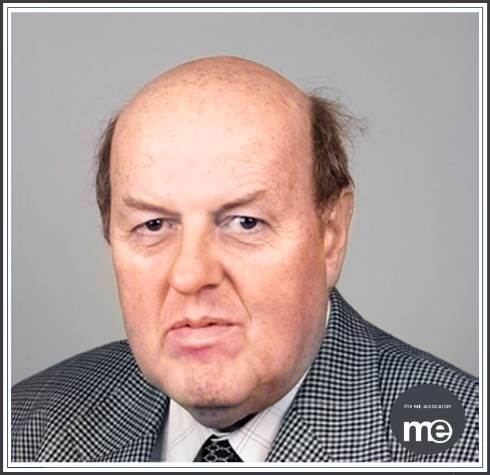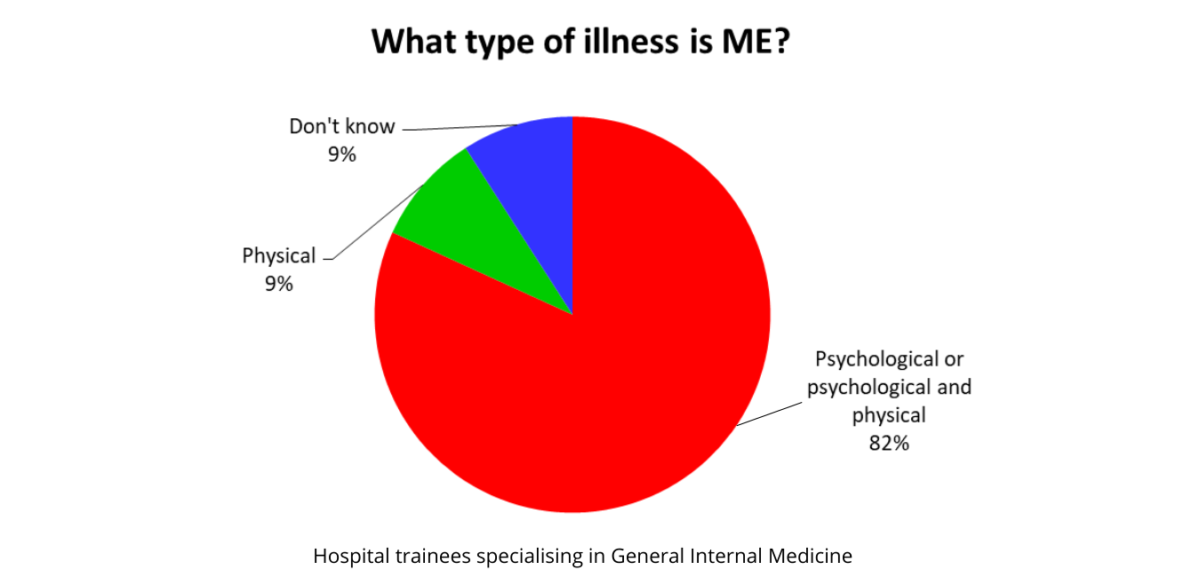An Audit of UK Hospital Doctors’ Knowledge and Experience of Myalgic Encephalomyelitis
Doctors with M.E. Founder and Director Dr. KN Hng, Director Dr. Keith Geraghty and Honorary Fellow Prof. Derek Pheby report their findings regarding ME/CFS knowledge and understanding amongst the medical community following an audit of hospital doctors at a training event in the UK.
The audit raises serious issues regarding the ability of doctors to correctly identify, diagnose and manage patients with ME/CFS. It is alarming that 98% of doctors believed Graded Exercise Therapy (GET) is a suitable treatment. The few doctors who had expressed confidence in diagnosing or dealing with ME were found to be wholly wrong in their understanding of the nature of ME, its diagnostic criteria and its treatment. Also concerning is the fact that none of the doctors who had had teaching on ME, or experience of ME patients, knew that ME is purely a physical and not a psychological illness, compared to 40% among those who had never received such teaching or experience. This begs the question of what they were being taught about ME.
These findings highlight the need for urgent improvements in medical education and understanding regarding ME/CFS.
“[This audit] has demonstrated areas of ignorance so considerable that patients treated on the basis of this would be put very much at risk.”
“Doctors need to be able to recognise ME regardless of their specialty, as it has such a wide range of symptoms and presentations. Not only does this audit demonstrate the great and urgent need for medical education on ME, which must be scientifically accurate and up-to-date, responses also demonstrate the appetite for it. More than half the respondents (56%) who answered this question wished to have more in-depth teaching on ME, and a total of 92% were amenable to it. Medical royal colleges and medical schools should take heed.”
Abstract
Background and Objectives: There is some evidence that knowledge and understanding of ME among doctors is limited. Consequently, an audit study was carried out on a group of hospital doctors attending a training event to establish how much they knew about ME and their attitudes towards it.
Materials and Methods: Participants at the training event were asked to complete a questionnaire, enquiring about prior knowledge and experience of ME and their approaches to diagnosis and treatment. A total of 44 completed questionnaires were returned. Responses were tabulated, proportions selecting available options determined, 95% confidence limits calculated, and the significance of associations determined by Fisher’s exact test.
Results: Few respondents had any formal teaching on ME, though most had some experience of it. Few knew how to diagnose it and most lacked confidence in managing it. None of the respondents who had had teaching or prior experience of ME considered it a purely physical illness. Overall, 82% of participants believed ME was at least in part psychological. Most participants responded correctly to a series of propositions about the general epidemiology and chronicity of ME. There was little knowledge of definitions of ME, diagnosis, or of clinical manifestations. Understanding about appropriate management was very deficient. Similarly, there was little appreciation of the impact of the disease on daily living or quality of life. Where some doctors expressed confidence diagnosing or managing ME, this was misplaced as they were incorrect on the nature of ME, its diagnostic criteria and its treatment.
Conclusion: This audit demonstrates that most doctors lack training and clinical expertise in ME. Nevertheless, participants recognised a need for further training and indicated a wish to participate in this. It is strongly recommended that factually correct and up-to-date medical education on ME be made a priority at undergraduate and postgraduate levels. It is also recommended that this audit be repeated following a period of medical education.
Citation
Hng, KN., Geraghty, K., Pheby, DFH. An Audit of UK Hospital Doctors’ Knowledge and Experience of Myalgic Encephalomyelitis. Medicina 2021; 57(9):885. https://doi.org/10.3390/medicina57090885

Dr. K.N. Hng
Founder
ST7 General Internal Medicine and Gastroenterology (Ret)
Author of ‘Doctor with M.E.: My journey with “Chronic Fatigue
Syndrome“‘

Dr. Keith Geraghty
Director
Honorary Research Fellow, Centre for Primary Care and Health Services Research, Faculty of Biology Medicine and Health, University of Manchester, Co-lead, NICE GDG commissioned Severe ME Research Group

Prof. Derek Pheby
Honorary Fellow
Visiting Professor of Epidemiology, Buckinghamshire New University, Founder, European ME/CFS Research Network (EUROMENE), Project Coordinator, National ME Observatory,

